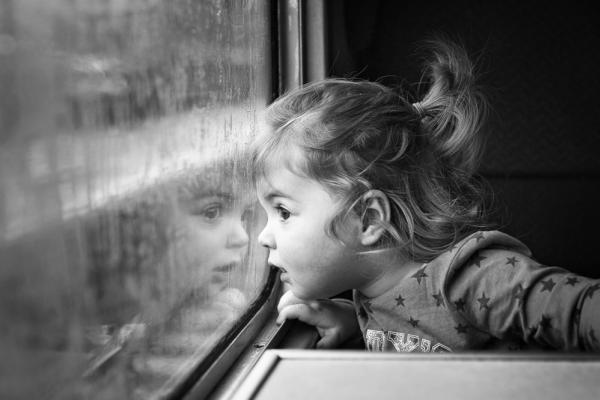I wonder: Would our societal rage soften if we peered together through my hospital window in 2015 and saw what I saw?
A formerly invisible world emerged, filled with crutches and wheel chairs and oxygen tanks and feeding tubes. Rugged individuality spells doom in that world — interdependence is a lifeline; kindness is a necessity; compassion is a strength and indifference is a weakness.
Who knows? Maybe we’d laugh off hate-mongering political leaders.
I was in the hospital because a 28-year-old nightmare had returned with a vengeance. Tongue cancer first struck me in the summer of 1987 while I was a soon-to-be-married 31-year-old seminary student (no, I never smoked). I endured painful twice-a-day radiation sessions at Massachusetts General Hospital in Boston and lost my thick beard. But, beyond that, I returned to normalcy. I spoke normally, ate normally, and sulked through normal first-world hissy fits, and the nightmare dwindled into a faded dream as I settled into married life, fatherhood, and a career of mending crisis-riddled churches. Sure, recurrences were possible, but after 28 years we’re talking lightning-strike odds.
Lightning struck in June 2015. I felt the pain on my tongue’s left side — the old tumor’s site — and immediately cloaked myself in denial. This can’t be cancer. The sores are just blisters and they’ll fade…
An ear, nose, and throat specialist confirmed the worst, then dropped some good news: He’d pass me on to a pair of specialists who could perform state-of-the-art reconstructive surgery, unavailable 28 years ago. Both assured me I’d talk and eat again — if all went well. Both also told me I’d never talk as well as I once did, and eating would prove challenging.
So how would I support my family? My son was in college and my wife had severe chronic fatigue syndrome and could not work full-time. Pastors, who are categorized as self-employed, are not eligible for unemployment benefits. I’ve always prided myself on my lone-wolf independence (in 1980, I bicycled across the United States and parts of Canada, down the west coast, and back east again), but I now dangled in the wind.
But my friends banded in a conspiracy of kindness. Together, they squashed the myth of rugged individuality. A friend set up a GoFundMe site on my behalf; my church granted me a paid leave of absence and established a donation fund. Checks poured in from across the country. Obamacare provided insurance. I felt the love from coast to coast.
I landed on the operating table on Aug. 24 at Hartford Hospital. My surgery was scheduled to last twelve hours. The surgeons needed only seven. Sleep was both commanded and vetoed. My tracheostomy rendered me mute, and I was tethered to devices monitoring everything from blood pressure to heart beats to oxygen levels to who-knows-what. Tubes supplied liquid food through my nose. I was utterly helpless.
Finally I was transferred to a hospital room in which I could sleep. It was through its window that I saw the hidden world.
I saw ailing patients. I saw the neighborhoods surrounding Hartford Hospital, which belie the city’s reputation as the home of pin-striped actuaries bored with their BMWs. Connecticut’s capital is, in fact, one of the nation’s poorest communities, its many marginalized Hispanic and African American neighborhoods barely seen by the BMW drivers.
My mind’s eye shifted to the larger marginalized populace: The cerebral palsy victims trapped in their bodies; MS patients; old women fumbling for change on the bus while hooked up to portable oxygen; old men wheezing with emphysema. So many people we barely see — and I was one of them. I was known as a good preacher until two weeks before — now I fought to pronounced the letter “s.”
I took solace in knowing that Jesus makes a bee-line for my new world.
Another round of surgery removed 29 lymph nodes, three of which proved cancerous. After I was discharged came the slow process of speech and swallowing therapy. I journeyed from liquids to pureed foods and, in Jan. 2016, preached a sermon as a guest speaker. All parishioners claimed they understood me, despite my speech impediment, and some asked me back.
Perhaps I could remain a pastor after all…
The cancer resurged that month. We filed for disability payments while grim doctors prescribed a three-phased treatment regime. I vomited, lost my hair, and shed twenty more pounds. After extensive treatments, I gradually recovered while awaiting a PET scan to confirm that all the cancer was gone.
Alas, it wasn’t. While the scan revealed nothing in my mouth, it showed metastasis just above my sternum. I’m now beginning an immuno-therapy trial at Boston’s Dana Farber Cancer Institute, to which my wife and I drive once a week for infusions.
This entire experience has made me shudder over America’s growing surliness. I wonder: What would The Donald do with the way I talk? How would modern-day, survival-of-the-fittest social Darwinists like the Tea Party handle someone who can’t work? Would they dump me and my family on the street?
More questions fly: Are we on the verge of labeling compassion wrong and indifference good? Are we really ready to worship the Rugged Individual and rip up our nation’s safety net? Have we forgotten that the Rugged Individual has always been an illusion?
We depend on others even at the peak of our strength. Witness me: Even in health, I couldn’t have bicycled across the country if it weren’t for the tax dollars and workers that paved our roads.
Perhaps we should calm ourselves. Perhaps we should gather at that hospital window and see those who depend on others through no fault of their own. I’m among them. We all are.
Got something to say about what you're reading? We value your feedback!
